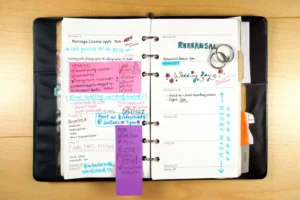“Professor Theophilus?”
“For the last time, Mr. Cheesewright, I will not change your essay grade.”
“My name’s not Cheeseblight.”
“Hmm?” I turned my head to see an unfamiliar face at the door. “I’m sorry, I thought you were someone else. How do you do?”
“Fine. I’m Paul Paradigm. You don’t know me.”
I smiled. “I take it, then, that you’re not here to complain about your grade. Would you like to sit down?”
He did.
“What can I do for you?”
“This friend of mine said I should talk to you. I wanted to talk to a Christian, but someone who doesn’t know me.”
“Are you in trouble?”
“No. And I’m a Christian myself. It’s just that all the Christian people I know are too judgmental to talk about this with.”
“What did you want to talk about?”
“Just that. About how to explain to them how judgmental they are. I’m in the college group at MacChurch — you know the one I mean? The huge church down on University Street?” I nodded. “I’m so sick of it all that some days I feel like bailing out on the whole Christian religion. The people there are always getting on someone’s case.”
“Yours, maybe?”
“You guessed it. Lately some of the people there think I’m a great big sinner or something. There’s one guy in particular. I thought he was my friend, but he’s on my case now too. He said something really cutting to me the other night. I thought, well, I thought maybe you could give me some advice about how to answer a person like that. I could have just told him off, but I didn’t think it would be Christian to do that.”
“You’re not giving me much to work with. What did he say?”
“Before the meeting, we always have a meal together. So we were all sitting around eating pizza and talking, right? And somebody said something about ‘living in sin’ — I don’t know what. Some people laughed because it sounded so old-timey. Then this guy, the one I thought was my friend, said ‘You shouldn’t laugh about living in sin. You might hurt Paul’s feelings.’ And they all laughed again. Well, one or two of them did. I don’t think most people knew what he was talking about.”
“Then you’re not living in sin.”
“No, of course not.”
“Then what was your friend talking about?”
“Me and my fiancée.”
“Your fiancée! Congratulations.”
“For what?”
“For your engagement.”
“We’re not engaged.”
“I must have misunderstood you. I thought you called her your fiancée.”
“I was just talking about our relationship.”
“How are you related?”
He looked at me strangely. “You know. We have a relationship.” When I didn’t speak, he said the word again, pronouncing it very clearly. “Relay — shun — ship.”
“I understand that you have a relationship. What kind of relationship do you have?”
“A committed one. See, that’s what my friend doesn’t understand. He thinks –”
“Committed to what?”
“Beg pardon?”
“What are you committed to?”
“I don’t get you.”
“You said you have a committed relationship. But you’re also said you’re not committed to marriage. What are you committed to?”
“To the relationship.”
I tried again. “A commitment is a commitment to do something. The way you commit yourself is to make a promise. What is it that you’ve promised to do?”
“I haven’t promised anything.”
“Then I don’t understand what you mean when you say your relationship is committed. Tell me again what kind of relationship this is. Do you mean a romantic relationship?”
“Yes.”
“Now we’re getting somewhere. You’re dating?”
“No, we’re with each other.”
“When you go with her somewhere, isn’t that a date?”
He gave me that strange look again. “Professor Theophilus, is English your second language by any chance?”
“No, why?”
“Sorry. Just wondering.”
“Explain again about going with her places.”
“I didn’t mean I go with her places. I mean we’re with each other.”
“But you’re not with her now.”
“Yes, I am.”
He didn’t look feverish. I spread my hands and looked around the room. “Where is she?”
“Does that make a difference?”
“It’s just that if you’re here and she’s not, she can’t be with you.”
“She’s not.”
“That’s what I’ve been trying to tell you.”
“I just meant we’ve been together for a few weeks.”
“Together.”
“Yeah. I was with her a few times, and we talked about it, and so we decided to be together.”
“Let’s use the language you called old-timey. Are you saying that you’re living with this girl?”
“That’s what I’ve been trying to tell you.”
“But when your friend said you were ‘living in sin,’ you objected.”
“That’s what I need your help about! See, he thinks it has to be sinful. But –”
“Doesn’t it?”
“No. For one thing, we’re deeply committed.”
“Let’s not get started on that again. You’re having sex, aren’t you?”
“I wouldn’t say that.”
“The question isn’t what you say, but what you’re doing.”
“We’re physical, if that’s what you mean.”
“You can’t help ‘being physical,’ Paul.”
“That’s just how we look at it. I knew you’d understand.”
“No, I mean you can’t help having bodies. You seem to mean something else. What do you mean by ‘being physical’?”
“You know, having intimacy. Showing affection. Building up a physical bond.”
“‘Being intimate’ means being close.”
“Like I said. We get real close.”
I screwed my eyes shut. “Let’s try again. Why don’t you call what you’re doing having sex?”
“I have very good brakes, and I’ve been making out with her for a long time and have complete control. I always put on the brakes before the final, um, thing.”
“Paul, that is having sex. What you call not having sex is having every part of sex except penetration.”
“Don’t you think that shows my self-control?”
“I think it shows your lack of self-control. Look, I don’t want to defend your friend. A sarcastic joke at your expense is not what I’d call holding you accountable to your faith. But you are, in fact, living in sin. You’re doing what that expression means.”
“Why do you call it sin? I told you we have a committed relationship.”
“We’ve been through that. You have no commitment whatsoever. Even if you did, the only commitment that would make a difference is marriage.”
“I know there have to be rules. I know sex is only for marriage. But we’re not having sex. I explained to you that I have complete control.”
“What you’re telling me is that you don’t have a license to drive, but you don’t want to wait either. So you start the motor, ram down the accelerator with your right foot, and ram down the brake with your left foot. The rear wheels spin and smoke, but the car — you say — stays put.”
“That shows how serious I am about not driving without a license. It shows my self-control.”
“It shows that you haven’t the slightest idea what a car is for. A car is for driving. If you have a license, drive. If you don’t have a license, don’t even turn the ignition key.”
“Don’t I need Driver Ed? There has to be a time to practice.”
“Sex isn’t difficult. You can practice when you’re married. Pressing the brake and the accelerator at the same time isn’t learning to drive anyway. It’s learning something else.”
“But if the car doesn’t go anywhere, what can be wrong?”
“Let me put it another way. Eating is pleasurable, but that’s not why eating was made. Why do you think it was made?”
“So that my body could be nourished.”
“Exactly. So feasting and vomiting — trying to get the pleasure without the nourishment — dishonors eating. Can you see that?”
“I see that it’s disgusting.”
“What I’m telling you is why it disgusts you.”
“Well, I’ll think about that. But what’s your point?”
“My point is that in the same way, sex is pleasurable, but that’s not why sex was made. It was made so that spouses could make children. Beginning the act but stopping short — trying to get the pleasure without the family — is disgusting for the same reason that feasting and vomiting is disgusting. It dishonors sex.”
“But that doesn’t disgust me.”
“What I’m saying is that it ought to. If I were trying to dissuade you from feasting and vomiting, would it be a good answer for you to say that doing that didn’t disgust you?”
“But it does.”
“It doesn’t everyone.”
Paul thought for a few moments.
“I think I get it. You’re saying that what I’m doing is wrong because I’m not finishing the job. If me and my girl friend went all the way, then it would be okay.”
“No, Paul. Don’t you see that you still wouldn’t be ‘finishing the job’? What you call going all the way — penetration and climax — isn’t going all the way. Not by a long shot.”
“You mean there’s something more?”
“I do.”
“What do you call going all the way?”
“What I call going all the way is going all the way to family. First you get married, then you have sex, then you have children. And you don’t mess with the sequence by having sex first, or by having children first, because families grow safely only within the protective framework of the permanent union between husband and wife. This is the only way the purpose of sex can be fulfilled. That’s why I call it going all the way.”
“You make everything so important.”
“You make that sound like a complaint.”
“It is one. You talk about these things — eating, sex — like they mean something. They don’t mean anything. They just are. If we can get pleasure from them, what does it matter how we get it?”
“That might do if there were no God. But you called yourself a Christian. If God is real, then everything in life means something. All creation is full of meaning and purpose and design.”
I paused. “Paul, it’s sad that you want life to have less meaning than it does. I’m sorry you’ve come to that. You can turn around, though.”
He was silent for a moment. “I think I’ll go now. I’ve taken up too much of your time.”
“Not at all.”
“No, I’m sure I have.” At the door he turned. “And I bet that Cheese guy deserved a higher grade.”
He was gone. But I had a feeling he’d come again.
Copyright 2001 J. Budziszewski. All rights reserved.










